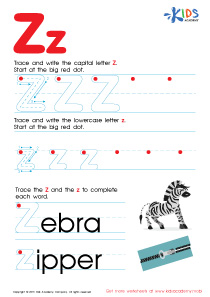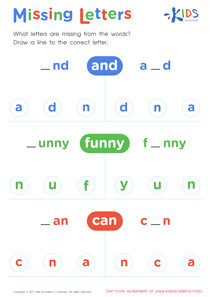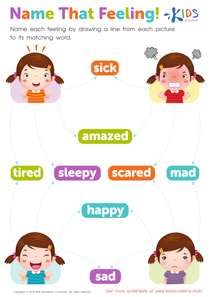Alphabet Recognition Extra Challenge Tracing Letters Worksheets for Ages 4-9
3 filtered results
-
From - To
Boost your child's alphabet recognition skills with our engaging Alphabet Recognition Extra Challenge Tracing Letters Worksheets designed for ages 4-9. These worksheets offer interactive tracing activities that make learning fun while developing fine motor skills. Each sheet provides a unique set of letters for children to trace, helping them familiarize themselves with letter shapes, sounds, and order. Perfect for both classroom and home use, these worksheets cater to various learning styles and pave the way for a strong literacy foundation. Challenge your young learners to master their ABCs and watch their confidence soar as they become proficient in letter recognition.


Letter A Tracing Page
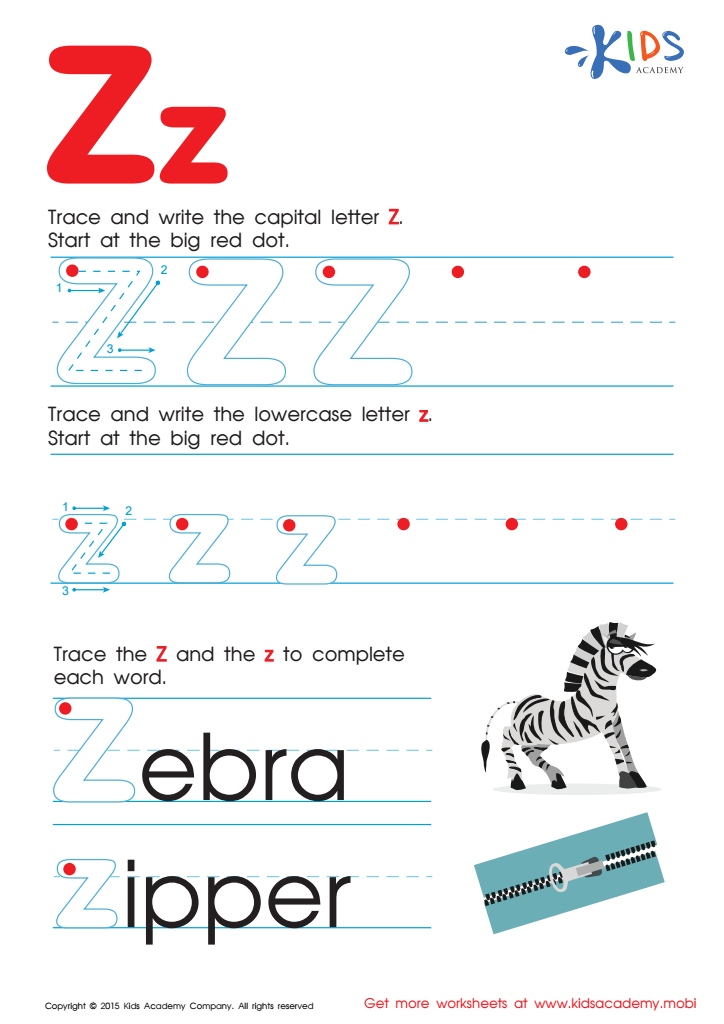

Letter Z Tracing Page
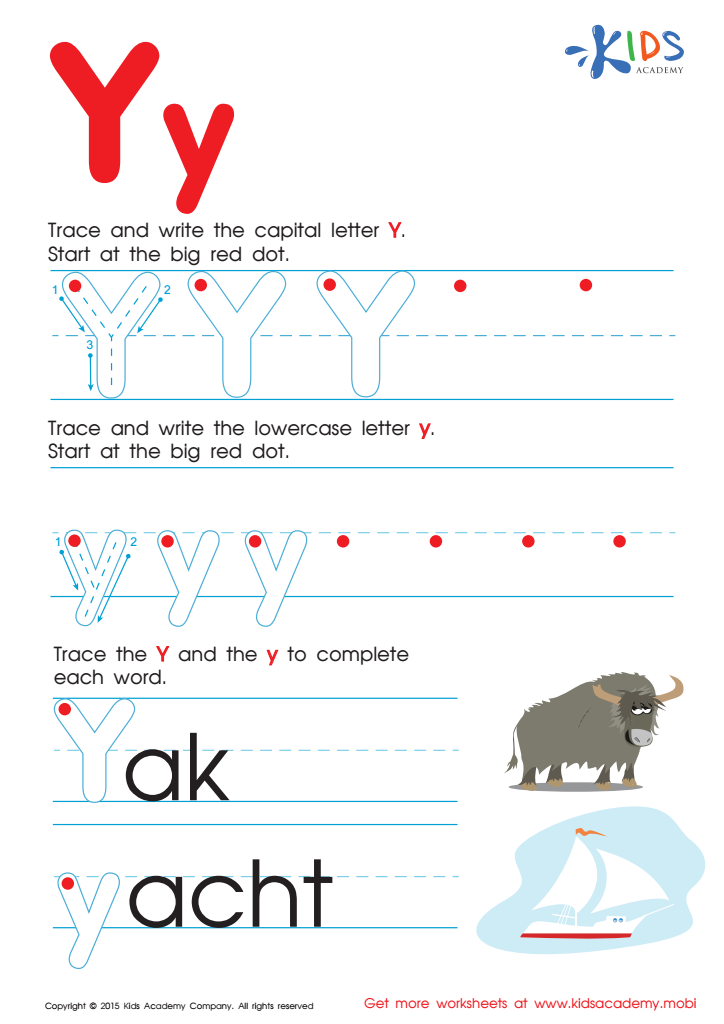

Letter Y Tracing Page
Alphabet recognition is a foundational skill crucial for young children's literacy development. For ages 4-9, engaging in activities like "Alphabet Recognition Extra Challenge Tracing Letters" can significantly enhance their understanding of letters and their corresponding sounds. This is particularly important as it supports phonemic awareness—an essential precursor to reading.
Carrying out tracing exercises reinforces fine motor skills, allowing children to develop better control and dexterity in their writing. It also builds visual discrimination, helping them differentiate between similar-looking letters, which is vital for decoding words later on.
Parents and teachers should care about these activities because they breed confidence and create a sense of accomplishment in children as they master new skills. Additionally, tracing letters can be a fun, interactive experience that promotes a positive attitude toward learning. It offers opportunities for repetitive practice, critical for retaining knowledge and ensuring long-term literacy growth.
Finally, these exercises can easily be integrated into home and classroom settings, making them an economical approach to enhancing literacy skills. By prioritizing such activities, parents and educators play a pivotal role in setting the stage for children's future academic success.
 Assign to My Students
Assign to My Students










